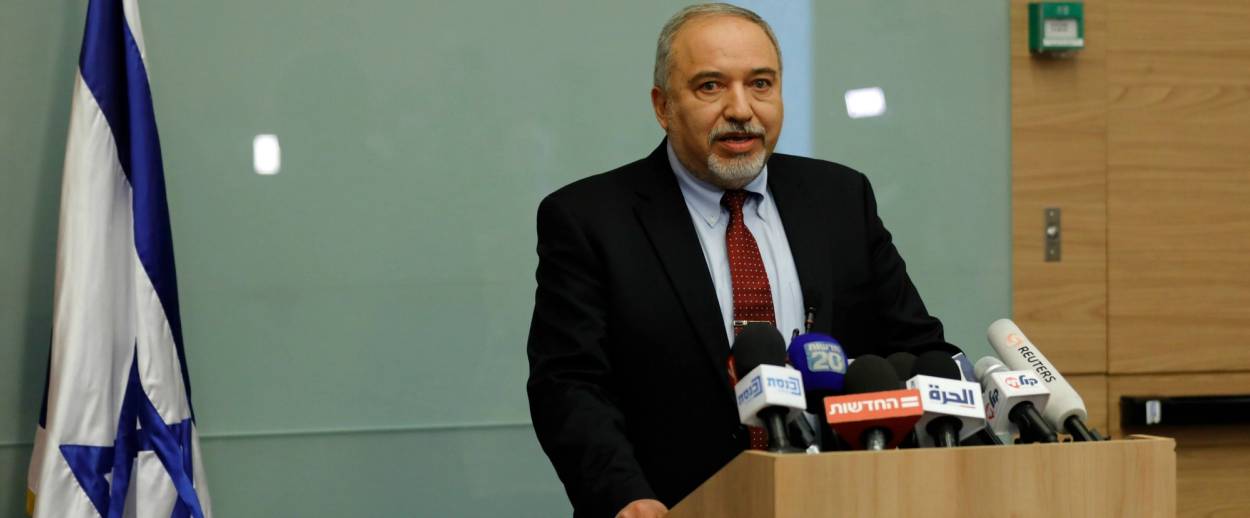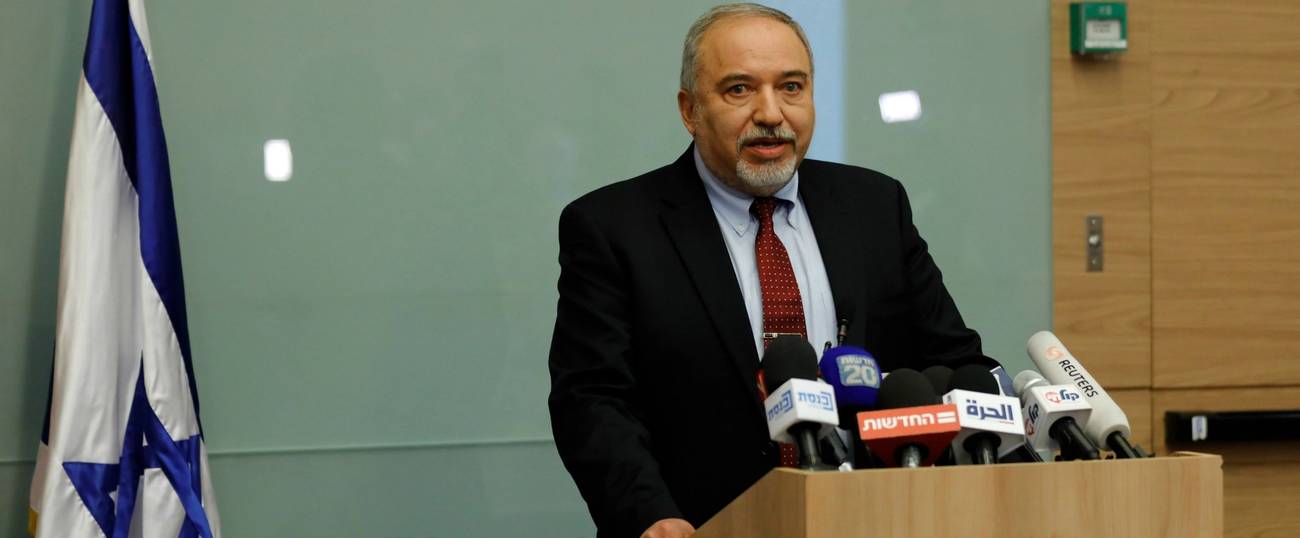Gaza Ceasefire Leads to Shakeup in Israel’s Government
Defense Minister Avigdor Lieberman resigned Wednesday after a deal was reached with Hamas, prompting speculation that early elections will be called




After an intense exchange of fire Monday that appeared to put Israel on the brink of another war in Gaza, on Tuesday the Israeli government agreed to a ceasefire with Hamas. That, in turn, led Israel’s acting Defense Minister Avigdor Lieberman to resign from the government on Wednesday in protest of the deal, which he called “a capitulation to terror.” Frequent Lieberman sparring partner, Education Minister Naftali Bennett, then took the occasion to threaten to pull his party, Bayit Yehudi, out of the governing coalition if he is not named as the next defense minister.
The political shakeup may lead to early elections being called in Israel after the new year.
The terms of the ceasefire reached on Tuesday are reportedly similar to a previous deal reached in 2014. The agreement appears to have been brokered primarily by the Egyptian government.
At a memorial for David Ben-Gurion on Wednesday, Israel’s Prime Minister Benjamin Netanyahu responded to criticisms of the deal by saying that Hamas “begged for a ceasefire, and they know very well why.”
Outside of government, there is widespread public sentiment that Israel is not doing enough to confront Hamas and protect the residents of the country’s South. Shortly after the ceasefire was reached, there was public unrest in the southern town of Sderot, which has taken repeated heavy rocket fire from Gaza. Hundreds of people in Sderot, mostly young men, took the streets in protest, blocking roads, burning tires and clashing with police there.
Defenders of Netanyahu’s security policy argue that the ceasefire allows Israel to focus on the more significant threats coming from Hezbollah in Lebanon and Iranian-backed forces in Syria.
Jacob Siegel is Senior Editor of News and The Scroll, Tablet’s daily afternoon news digest, which you can subscribe to here.